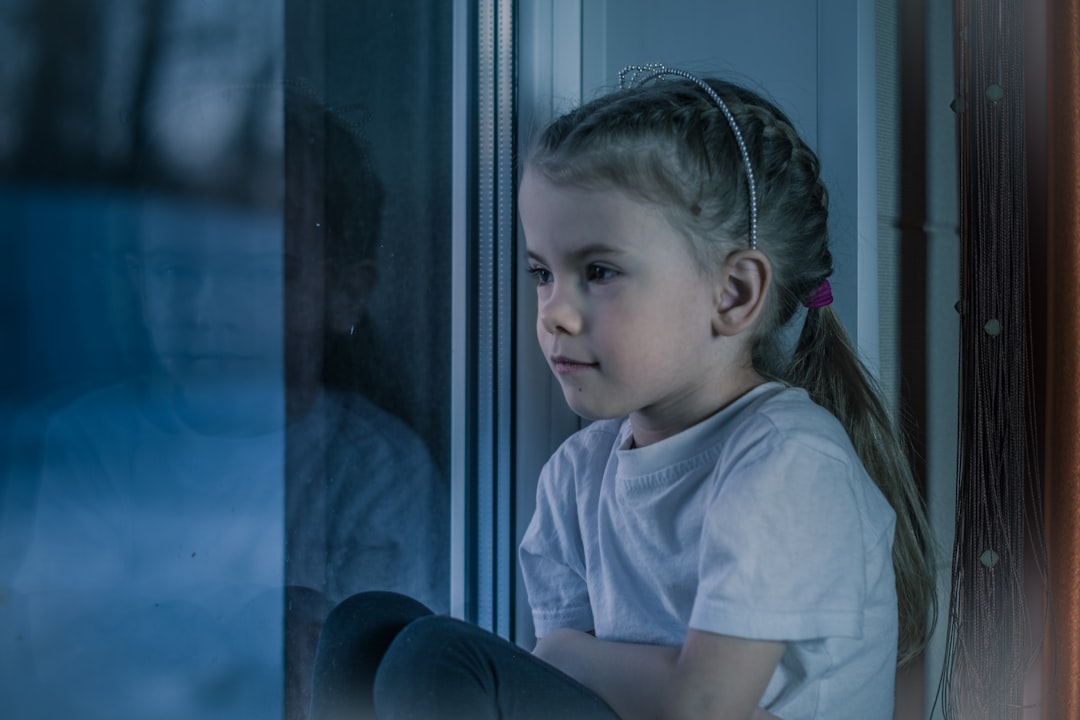Disappointment is a universal part of life, but it can feel magnified for children. Whether it’s missing out on a birthday party, not making the team, or encountering day-to-day setbacks, handling disappointment is a skill every child must learn. As parents, we naturally want to shield our kids from pain, but supporting them through these feelings is essential for their emotional development.
Why Helping Kids Learn to Handle Disappointment Matters
Facing disappointment helps children build resilience, self-confidence, and problem-solving skills. Shielding them from all negative experiences may seem protective, but it actually hinders their growth. When kids learn how to process and move beyond letdowns, they gain the tools needed to thrive in an unpredictable world—and that’s a gift that lasts a lifetime.
Understanding How Kids Experience Disappointment
It’s easy to forget that children’s brains and emotional regulation are still developing. What might seem small to us can feel world-shattering to them. Common disappointments for kids include:
- Not being invited to a friend’s party
- Losing a game or competition
- Failed attempts at mastering new skills (like riding a bike or reading)
- Plans getting canceled unexpectedly
- Receiving less attention or praise than expected
These moments present valuable learning opportunities, but only when we handle them with empathy and guidance.
Signs Your Child Is Struggling With Disappointment
Children may not always directly express disappointment. Look for subtle cues:
- Sudden mood swings or withdrawal
- Outbursts, tantrums, or unexplained tears
- Refusing to try again or becoming fearful of new activities
- Negative self-talk: “I can’t do anything right.”
- Excessive grumpiness or irritability
Recognizing these signs can help you intervene before disappointment leads to low self-esteem or anxiety.
How to Respond: A Step-by-Step Guide for Parents
How you respond to your child’s disappointment sets the tone for their emotional growth. Here’s how to help:
1. Validate Their Feelings
Acknowledge their emotions. Say things like, “I can see you’re really upset about not making the team. That must hurt.” This lets your child know it’s okay to feel sad or frustrated—and that you’re there for them.
2. Resist the Urge to Fix Everything
It’s natural to want to swoop in and make things better. However, immediately distracting a child from their feelings or offering a replacement (“We’ll get you a new toy instead!”) may signal that negative emotions should be avoided rather than processed.
3. Encourage Expression in Healthy Ways
Some kids talk, others draw, write, or act out what they’re feeling. Offer options:
- Journaling or drawing about their disappointment
- Talking openly together in a safe space
- Engaging in play that helps them express or process emotions
4. Teach Coping Skills and Emotional Balance
Discuss age-appropriate strategies to manage disappointment, such as deep breathing, counting to ten, or using positive self-talk (“I didn’t win this time, but I can try again.”).
5. Model Resilience Yourself
Children learn by example. Share your own experiences with disappointment and how you handled them. Let them see that it’s normal to make mistakes, be disappointed, and keep trying.
Common Parent Pitfalls and How to Avoid Them
It’s easy to slip into unhelpful patterns when your child is hurting. Be mindful of these common missteps:
- Dismissing Their Feelings: Saying “It’s not a big deal.” Even small disappointments matter to kids.
- Overprotecting: Frequently removing all obstacles or failures limits growth.
- Overreacting: Making a big fuss may amplify distress rather than helping your child move on.
- Fixing or Replacing: Immediately providing a substitute doesn’t let your child learn endurance or problem-solving.
Practical Strategies to Build Resilience
Help your child bounce back after disappointment with these actionable steps:
- Normalize Setbacks: Remind them everyone experiences letdowns; it’s part of learning and life.
- Encourage Effort, Not Just Outcomes: Praise their hard work, progress, and courage to try—regardless of results.
- Discuss Growth Mindset: Use phrases like “You haven’t mastered this yet,” or “Every time you try, you get better.”
- Set Realistic Expectations: Teach that it’s okay not to win or succeed every time.
- Celebrate Problem-Solving: Applaud creative ideas for next steps—even if the original goal wasn’t achieved.
When Disappointment Leads to Growth: Real-Life Scenarios
Helping your child reframe disappointment can turn challenges into fuel for future success. Here are examples of teachable moments:
- Missed Party Invitation: Discuss how friendships can shift and brainstorm ways to make new friends or plan fun activities together.
- Sports Defeat: Review the effort put forth, emphasize teamwork, and set new practice goals together.
- Not Getting the Desired Toy: Explore other ways to feel joy or suggest saving up for it—teaching patience and delayed gratification.
Discussing these scenarios with empathy helps your child develop lasting problem-solving skills.
Teaching Emotional Vocabulary for Kids
Younger children especially need words to describe their feelings. Expand your child’s emotional language with activities like:
- Reading picture books about disappointment and discussing characters’ feelings
- Playing games where you name emotions on faces in photos or illustrations
- Drawing “feeling faces” on paper or with toys to explore different emotions
A richer emotional vocabulary helps kids manage complex feelings and communicate more effectively.
Supporting Different Age Groups: Tailored Approaches
Preschoolers (Ages 3–5)
Young children often can’t verbalize why they’re feeling upset. Use concrete language (“You seem sad we can’t go to the park today. That’s hard.”) and offer comfort like hugs or quiet time. Use stories and play to explore feelings of disappointment.
Elementary Ages (6–12)
School-age kids can start reflecting on why something feels disappointing. Encourage conversation, ask open-ended questions (“What do you think you’ll try next?”), and help brainstorm solutions or next steps. Role-playing scenarios can help them practice responding to letdowns.
Tweens & Teens (13+)
Older kids experience social and academic disappointments that feel significant. Validate their feelings, respect their desire for some privacy, and offer to problem-solve together only if they’re open to it. Encourage self-reflection and the idea that setbacks are a natural part of pursuing meaningful goals.
Helping a Child Who Feels Disappointment Deeply
Some children, especially those who are sensitive or perfectionistic, may become overwhelmed by disappointments. If your child:
- Struggles to recover from setbacks
- Expresses frequent negative self-talk
- Starts avoiding activities to prevent failure
Consider these tips:
- Reinforce that love and approval are not based on achievement
- Limit comparisons to others
- Break big challenges into manageable steps
- Promote self-compassion and patience with mistakes
If intense reactions persist or start to affect daily functioning, don’t hesitate to consult with a pediatrician or child psychologist for extra guidance.
Building Your Family’s Disappointment-Handling Toolkit
Here’s a quick-reference toolkit you can use when disappointment strikes:
- Pause: Take a few deep breaths together before responding.
- Reflect: Ask your child to name their feeling—sad, frustrated, angry, embarrassed?
- Empathize: “It’s okay to feel that way. I do too sometimes.”
- Discuss: “What could help you feel better right now?”
- Brainstorm: Work together to generate possible next steps or alternative plans.
- Encourage: Remind them this feeling won’t last forever and they can get through it.
Post this list somewhere visible at home so everyone knows what to do when things don’t go as planned.
When to Worry: Signs Your Child Needs Extra Support
Occasional setbacks are part of a healthy childhood. But some signs signal a need for more help:
- Persistent sadness or irritability lasting more than two weeks
- Withdrawal from friends or activities they once enjoyed
- Changes in sleeping or eating habits
- Frequent physical complaints (stomachaches, headaches) with no clear cause
- Feelings of hopelessness or worthlessness
If you notice these, reach out to a pediatrician or child mental health professional. Early intervention can make a huge difference.
Using Disappointment as a Springboard for Growth
Rather than fearing your child’s disappointment, use it to foster skills they’ll need throughout life:
- Encourage trying new things, even when there’s a risk of failure
- Reflect on how past disappointments led to growth or learning
- Model gratitude and perspective (“I know you’re disappointed about the game, but it’s great that you tried and made friends.”)
Remember, the ability to persevere in the face of difficulty is crucial not just for academic success, but for happiness and fulfillment in adulthood.
Resources for Parents: Further Reading & Support
- Books: “The Most Magnificent Thing” by Ashley Spires, “Alexander and the Terrible, Horrible, No Good, Very Bad Day” by Judith Viorst
- Websites: Search for child resilience resources from your local library or national parenting organizations
- Professional Help: Licensed therapists specializing in child or adolescent psychology (especially if disappointment seems to spark anxiety or depression)
Conclusion: Planting Seeds of Resilience
No parent enjoys seeing their child disappointed. But with empathy and practical strategies, you can turn these moments into powerful lessons. By supporting your child in expressing their feelings, teaching coping skills, and celebrating effort over outcome, you’re building a foundation of resilience and optimism. Helping your child handle disappointment is truly one of the greatest gifts you can give—and it will serve them well for a lifetime.




